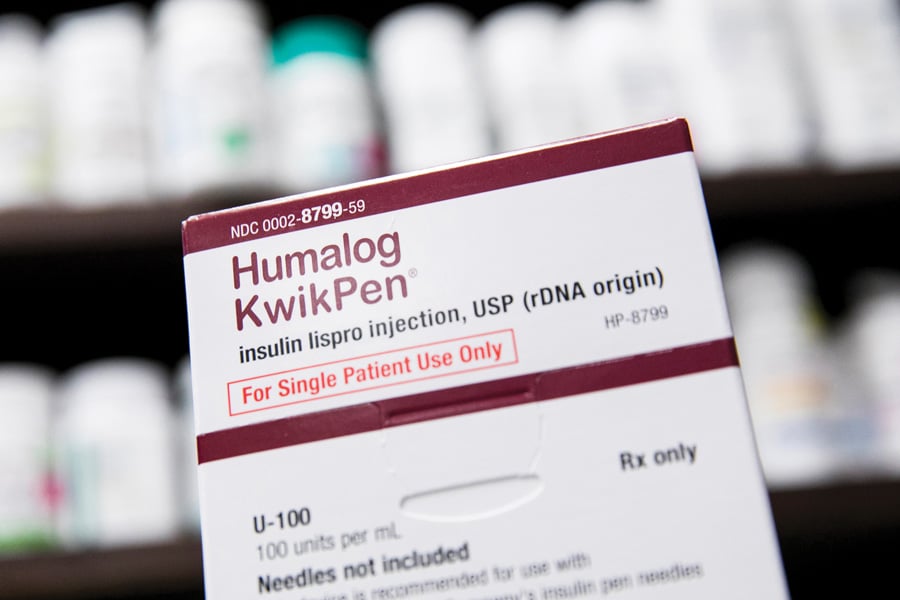Insulin price cap signed into law
Kristoffer Tripplaar/Sipa USA/TNS
A package of Humalog KwikPen insulin injectors photographed in a pharmacy in Remington, Va., on February 26, 2019. Gov. J.B. Pritzker signed into law a cap on insulin prices in state-regulated health plans.
February 9, 2020
Out-of-pocket insulin prices in state-regulated health plans will soon cap at $100, according to the Jan. 24 bill Illinois Gov. J.B. Pritzker signed into law.
The bill was introduced to state legislators in November 2019, passing in both the House and the Senate. State Rep. Robyn Gabel (D-Evanston) voted in favor of the bill.
“It impacts so many constituents whose lives depend on insulin but are unable to afford it as costs are rising so quickly,” she said.
More than 30 million Americans live with diabetes — including 1.3 million Illinois residents — and require insulin to regulate their blood sugar levels, according to the Illinois Department of Public Health. The hormone allows the body to use glucose, which prevents blood sugar levels from rising too high or dropping too low. Many diabetics struggle to afford insulin, with one in four patients at an urban diabetes center reporting they rationed the hormone due to cost, according to a 2019 National Institutes of Health study.
“I have heard reports from constituents who need insulin to maintain their health but are under increasing strain from the cost,” Gabel said. “Being forced to skip doses or try to ration your medication because you can’t afford it is a terrible predicament to be in.”
Pritzker expressed his support for the bill even before its introduction. He said rising insulin costs were “an enormous burden for too many Illinois families.”
After signing the law last month, Pritzker tweeted, “healthcare is a right for all, not a privilege.”
Insulin prices have skyrocketed over the past few decades, in part because only 3 companies in the United States produce the hormone, according to the American Diabetes Association. Both houses of Congress are pushing for legislation to lower drug prices. Some view these initiatives as a step toward more affordable healthcare.
“I hope this law will help people afford the medication they need to survive while also continuing the conversation about unaffordable prescription drug costs and how to ensure access to healthcare for all,” Gabel said.
While many Evanston residents may have access to affordable insulin in the future, the law may not benefit all Illinois residents. Kina Collins, a healthcare advocate running for the Illinois 7th Congressional District seat, said the insulin price cap does not adequately help lower-class families, who might still struggle with adjusted cost.
“Some might say $100 is cheap for insulin, but tell that to the grandmother on the South Side of Chicago living off a reduced social security check, or the factory worker on the West Side of Chicago who makes minimum wage,” she said. “The only group of people who benefit from this type of legislation are the big pharmaceutical companies, not the majority of us living paycheck to paycheck.”



